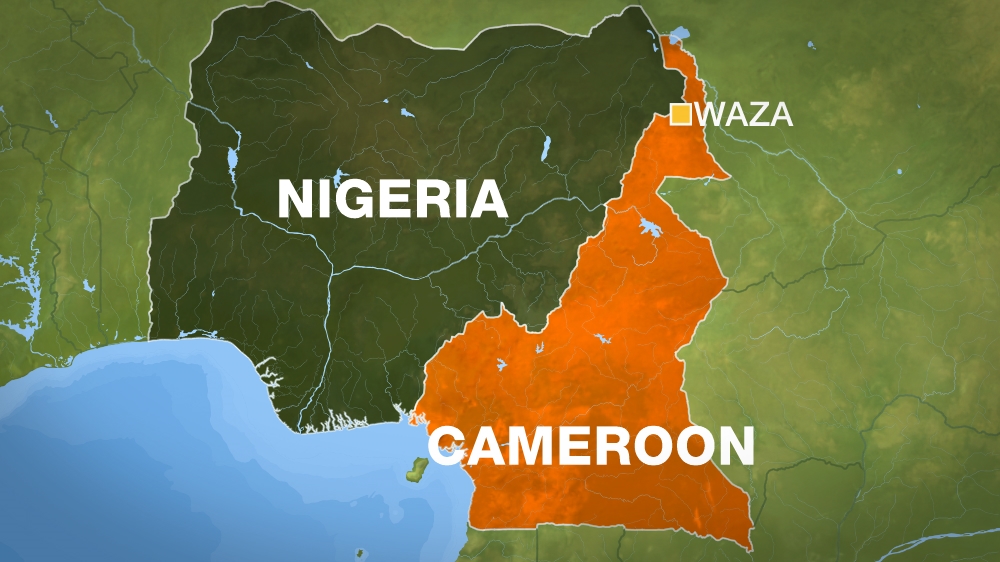Environment involves living organisms and the non-living physical conditions which are inseparable but inter-related. The living and physical components are linked together through nutrient cycles and energy flows.
Trans-boundary ecosystems are regions or habitats treasured for their ecological, aesthetic, and cultural value. They are often trans-boundary in nature and prominent places for conservation efforts.
Lately, the Nigerian authorities and their Cameroonian counterparts have resolved to conserve their trans-boundary ecosystems with a view to benefiting from them. This involves a number of activities including monitoring, maintaining and restoring the ecosystems.
Officials of the two countries later signed an agreement which was meant to consolidate their efforts in safeguarding the ecosystems. Both officials had earlier met in 2022 as a prelude to signing the agreement.
2024 Hajj: NAHCON urged to announce inaugural flight date
Police rescue kidnapped pregnant woman in Enugu
In addition, the agreement was said to have been signed to promote ecosystem conservation and sustainable management of forestry and wildlife resources aimed at curbing illegal activities and strengthening ties between both countries.
Illegal logging by foreigners in parts of Taraba State which shares a border with Cameroon is said to have reached alarming levels to the extent that rosewood trees face extinction. Millions of this species are felled daily in some local government areas, allegedly for timber and virgin paper making. These trees could also be found in the border areas with Cameroon as well as in parts of Cameroon where illegal and licensed logging takes place.
Cameroon loses about 33 billion CFA francs (almost US$ 60,000,000) annually through the illegal exploitation of timber.
Over 1.4 million Kosso (rosewood) logs worth about US$300 million illegally sourced from Cameroon were allegedly shipped to China through Nigeria in 2017.
The supply chain involves criminal groups, public officials and community leaders.
The signed agreement will help in conserving the forest in both countries thereby preventing erosion, improving water and air quality as well as mitigate climate change.
On the other hand, the current rate of bushmeat hunting is aggravated by informal and industrial logging operations, agro-industry activities and building of infrastructure that opens access into previously difficult-to-reach areas. This coupled with a lack of resources and political will were said to have prevented enforcement of relevant laws.
Also, the Regional Action Plan for the Conservation of the Nigeria-Cameroon Chimpanzee did not make meaningful progress because it was approached through the creation of protected areas with clearly defined, legislated and enforced levels of permitted exploitation, but these protected areas generally received inadequate resources for their effective management.
The essence of wildlife conservation is to save species on the verge of extinction and indeed the whole planet, the delicate balance needed for life to thrive, and the dependence of everything on one another for survival.
This means the Nigeria‐Cameroon border must include cooperative management of the transboundary ecosystems, species and natural resources that support human well‐being in both countries.
Policymakers are expected to use the concept of ecosystem services to mount a bi-national policy approach for Nigeria‐Cameroon transboundary conservation.
This approach will include ecosystem management; managing areas at various scales in such a way that ecological services and biological resources are conserved while appropriate human uses are sustained.
The most obvious reason for management and conservation is to protect wildlife and promote biodiversity. Protecting wildlife and preserving it for the future.
Nigeria and Cameroon must conserve transboundary ecosystem services in the face of environmental changes including drought, land‐use change, intensive water use, deforestation, urbanisation, habitat fragmentation and most importantly, climate change.
Nigeria’s ecosystems range from semi-arid savanna to mountain forests, rich seasonal floodplain environments, rainforests, vast freshwater swamp forests and diverse coastal vegetation. Nigeria’s Niger Delta contains the largest tract of mangroves in Africa. In comparison, Cameroon’s ecosystems can be divided into six main ecosystem types, namely, Coastal/Marine, Tropical Humid Dense Forest, Tropical Wooded Savannah, Semi-Arid, Montane and Fresh Water Ecosystems
The land boundary between Nigeria and Cameroon extends for 2,062 km from Lake Chad in the north to the Gulf of Guinea in the south. Thus, the two countries are said to have shared ecosystems and must make every effort to conserve them by monitoring and preventing illegal activities such as timber trespass and theft as well as protecting endangered species.
Since 1963, the two countries have had a long history of cooperation which borders on transboundary security, a joint commission on transboundary conservation and this agreement would further strengthen the long-standing relations and will symbolize a milestone in providing a platform for the establishment of a joint cross-boundary management framework within which to facilitate cooperation and coordination within the countries and enhance the good use of their forest resources.
The agreement will also improve the legal system to see environmental crime as serious as other crimes.
Other countries and international organisations would join in supporting the two nations in achieving their transboundary environmental services. Germany will train officials of the two countries on legal matters concerning the agreement.
Nigeria’s Minister of Environment, Balarabe Abbas Lawal, who signed on behalf of his country, said the exploitation and illegal marketing of non-timber forest products was a crime that must be tackled thus, the efforts will ensure that activities within the borders are carried out under the law.
According to him the common border between Nigeria and Cameroon spans over 1,500 Km as such necessary cooperation is needed towards harnessing its benefits for the two countries.
The Minister of Forestry and Wildlife Resources of Cameroun, Mr Jules Ndongo, who signed on behalf of his country, said the agreement will strengthen specific protocols and make them consistent in already identified cooperation areas.
He noted that it will help in the cooperation and implementation of joint border programmes and mobilize institutional funds for the implementation of joint cross-border activities.
Therefore all parties in the agreement should become more committed to the implementation of the instrument,
Also, Cameroon should continue to collaborate with Nigeria towards harnessing environmental resources for development.
Muhammad resides in Wuse 2, Abuja

 Join Daily Trust WhatsApp Community For Quick Access To News and Happenings Around You.
Join Daily Trust WhatsApp Community For Quick Access To News and Happenings Around You.


